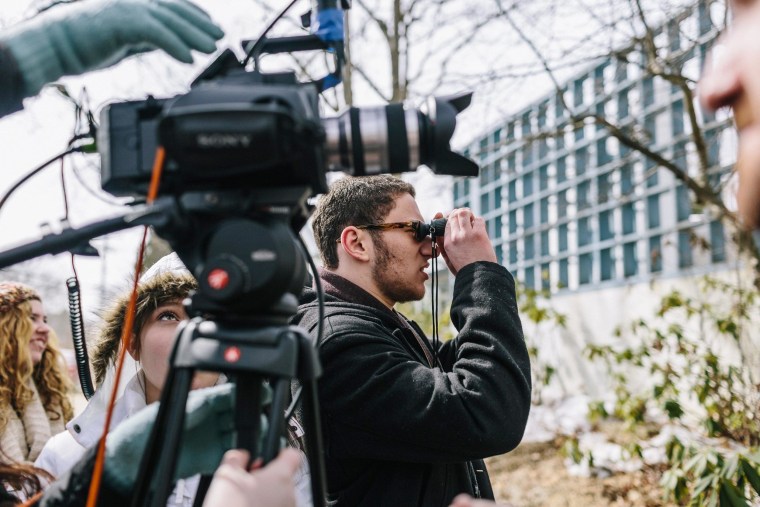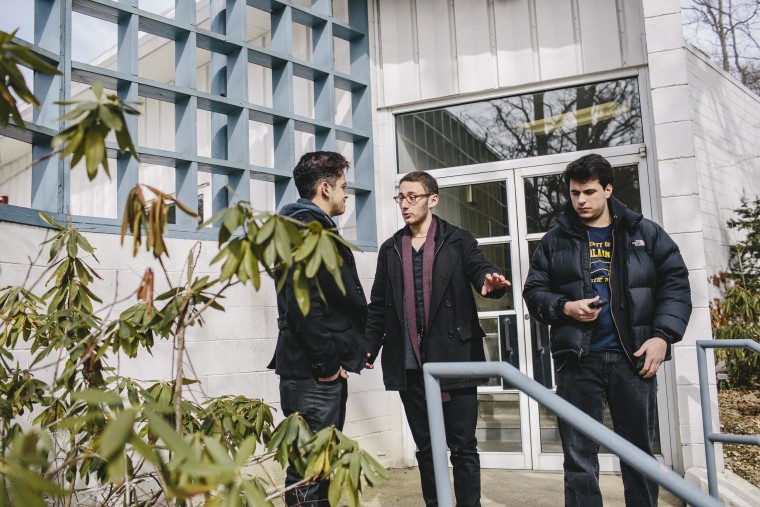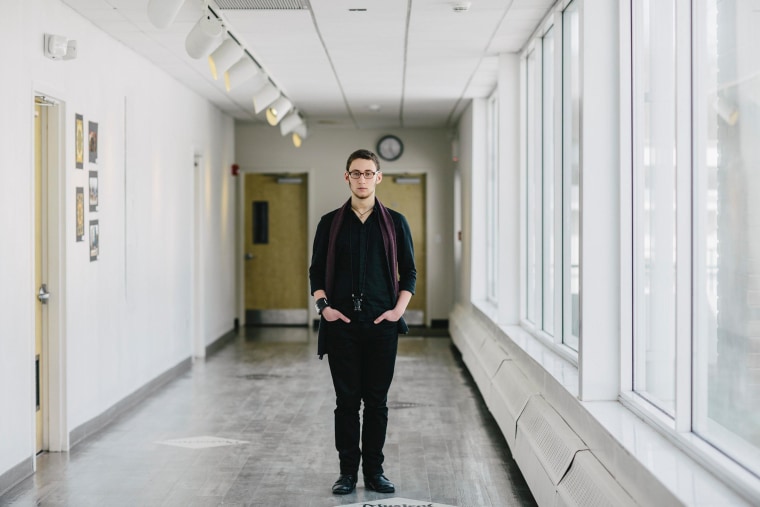Max Novick has known he’s wanted to be a filmmaker for years, ever since he saw "A Clockwork Orange" and "Fight Club." Since then, he’s set about making this happen. His resume is four pages long, filled with dozens of jobs—production assistant, director of photography, script supervisor—on independent and student films in the New York area.
He’s also only 16 years old, a junior at Roslyn High School in Long Island. The “jobs” have been unpaid volunteer opportunities—in other words, internships. He’s been “aggressively seeking this stuff out” since middle school.
“I just think, ‘What am I waiting for?’” he said. “Now’s the perfect time because I’m not in college so I don’t have to worry about getting paid…I’m really kind of future oriented.”
Novick isn’t exactly typical, but research shows that internships for high schoolers are indeed on the rise. With a disappointing job market, a sky-high youth unemployment rate, and an increasingly competitive college admissions process, high school internships are considered a way to beat the odds.
A recent survey by Millennial Branding and Internships.com finds 77 percent of high school students are either extremely or very interested in volunteering to gain work experience, compared to 63 percent of college students. Some companies are responding accordingly; out of the 326 employers surveyed, 50 percent are creating high school internships this year.
“I have parents of 9th graders desperate to find an internship for their kid."
Very little long-term research has been done on the subject, but officials ensconced in the “career centers” at local high schools have noticed an increasing number of kids taking internships—and wanting them. Helaine Marberry, a guidance counselor at the School for the Gifted and Talented in Dallas, Texas—one of the top-ranking public high schools in the country—said “all the students and parents are clamoring” for these kinds of volunteer opportunities.
“I have parents of 9th graders desperate to find an internship for their kid,” she said. “Everyone and their uncle wants an internship.” Marberry said that because of liability issues, and a desire for relatively mature interns, “supply hasn’t kept up with demand.”
Marberry has been in education for 24 years, and she’s never seen parental anxiety this high. “The economy has put a level of fear into [parents] that they want to make sure their student has every opportunity,” she said. The kids pay attention to the news, too, said Marberry—“they know how tough it is out there.”

Novick acknowledges that he isn’t just doing internships because he loves filmmaking—or else he’d simply concentrate on his own projects. The economic climate, and his parents’ Eastern European immigrant past “has given me this survival mindset to take any job I can,” he said. “I have to be able to see things that way and not just be Mr. Artist.”
Novick sought out his internships on his own, but many schools actively facilitate them. In Dallas, Marberry helps hook kids up with the Mayor’s Intern Fellows Program, a competitive eight-week summer internship with a variety of companies and organizations in the area. At Loveless Academic Magnet Program High School in Montgomery, Ala., students in a “field study” class leave school early to intern anywhere from cardiovascular firms to the district attorney’s office to graphic design schools.
Guidance counselor Mary Harmon, who has taught the class, has noticed that the 20 students who participate per year “are extremely career oriented,” especially those who are interested in science, technology, engineering and math. She recalled being taken aback when a student told her she’s known since second grade that she wants to be a doctor.
“When I was in second grade, I was thinking about jacks and jumprope,” she said.
But Harmon knows the world has changed—and that her students are constantly searching for a modicum of security and clarity. “The benefits are amazing because [the internship] either solidifies what they wish to study, or it points them in a totally different direction,” she said. “That way they can kind of know their path very early.”

Aaron Haney, an 18-year-old senior at Loveless, interned two years in row at a local orthopedic practice in Montgomery, and feels “fortunate” to already know that he wants to be a surgeon.
“I didn’t want to waste my time in college,” he said. “Especially the money.”
Katherine Lothrop, 18, interned one summer with Food for Good at PepsiCo through the Dallas mayor’s program and discovered her love of industrial engineering and food management. She helped design educational programs for low-income families on how to eat healthfully on a budget and assisted with experiments on new packaging material for milk, to make sure the milk remained cold and safe to drink for several hours.
But there’s a major difference between the Dallas mayor’s program and the field study class in Montgomery: the former pays the kids $9 an hour, while the latter pays nothing. Ross Perlin, author of “Intern Nation: How to Earn Nothing and Earn Little in the Brave New Economy,” said all workers, whether they’re teens or not, deserve to be paid for their services.
Some students would rather “have a really rich preparatory experience than [earn] minimum wage selling a coke somewhere.”
“It doesn’t matter that it’s a disposable income for a high schooler—a fair wage for a hard day’s work is one of the most important lessons a job or internship can teach,” Perlin wrote in an email. “Teenagers need to have the full experience of working and earning money and feeling more independent.”
Of course, some see an internship not necessarily as a career opportunity but as a strategy to get into the university of their dreams. Marberry said it would “be naïve to say that [students] are not hoping this will be a feather in their cap for their college applications.” She said she’s glad the Dallas Mayor’s program pays, because some students would rather “have a really rich preparatory experience than [earn] minimum wage selling a coke somewhere.”
Yet Greg Buckles, the dean of admissions at Middlebury College, said the fact that an applicant has an internship doesn’t matter as much as what they have to say about it. Go-getting students “might mistake an exotic or unique-sounding opportunity for helping them stand out,” but “a student can just as easily have a job scooping ice cream, as long as they’re able to talk about why that experience was important.”
He admitted that internships may be more important at pre-professional schools, but in the liberal arts, students’ “resiliency, their tolerance, their ability to be a good friend” and, of course, their academic achievement, are all a higher priority than “experiential learning.” The courses kids are taking and how they’re doing in them “are always going to be the most important,” he said. “Internships will never eclipse that.”
And even the question of whether to do an internship hinges on a student’s socioeconomic situation. Max lives in Roslyn, a wealthy suburb with a wealth of opportunity in nearby New York City. Marberry and Harmon work in feeder schools to elite private colleges across the country. But not every high school can provide these services, and not every student can afford to work for free.
“Though some of these can be good experiences for those who can access them, and have the ability to do them, the net social effect can be more troubling,” Perlin said. “Are we simply extending down to younger and younger ages the same kind of inequality, the same skewed playing field that unpaid internships have been creating more generally?”
Education coverage for NBCNews.com is supported by a grant from the Bill & Melinda Gates Foundation. NBC News retains sole editorial control over the content of this coverage.
